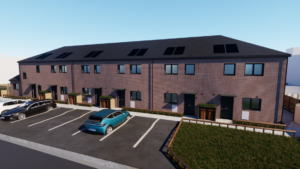Land values major obstacle to community-led housing
 The issue of whether local authorities can release land at less than the market value remains one of the biggest barriers to more community-led housing projects, according to sector experts.
The issue of whether local authorities can release land at less than the market value remains one of the biggest barriers to more community-led housing projects, according to sector experts.
Speaking in front of the London Assembly’s housing committee last week, Emily Auckland, a senior project manager at the UK charity Bioregional, said working with local authorities ‘is incredibly difficult when it comes to the best consideration of land values’.
‘Even where a local authority is willing and has engaged with a group, getting around that requirement and justifying something, which is perhaps considered more risky is an issue,’ she told the committee.
Lewisham council’s housing strategy manager, Jeff Endean admitted the process local authorities have to go through to release land at less than the market value is one of the reasons why community-led schemes can be ‘slow coming forward’.
‘Local authorities have a duty to secure best value,’ he added. ‘It’s not just about land value, but there is a process to go through.’
Bristol city council’s housing delivery manager, Tom Southall, said local authorities often have ‘competing priorities’, including maximising capital receipts from the sale of land or other assets.
‘We found by providing exclusive options to community land and development trusts, we were able to give them a breathing space, which enabled the organisations to think “we’ve got the land, we can go out into the market and get the best possible deals”,’ he told the committee.
‘What we have learned recently is that the HACT model for valuing social value is an extremely powerful tool,’ he added.
‘In the past, if we wanted to sell things on a discounted basis, we had to work out the value of the nomination rights. Social value is a lot more difficult [to measure], and what pleased us is they [HACT] have had it recognised by the Treasury, which makes all the difference.’
The secretary of the London Federation of Housing Co-operatives, Greg Robbins, said it is also ‘quite possible that co-ops share too much information with the local authority’ when negotiating to buy land.
He quoted the example of an un-named group who spent looking five years ‘largely negotiating over the price with local authority officers’.
He added there is also an issue of agreeing the price of the land, especially when there is a ‘certain inertia in dealing with certain local authority departments’.
‘Each time a positive business plan is agreed, there is a realisation, that maybe co-operative could be squeezed a little bit more, so the price being offered changes. If that happens three or four times, it’s impossible for the TMO (tenant management organisation) to ever move forward.’
But Mr Endean said the London borough of Lewisham is currently working with two community land trusts and has a ‘deliberate policy of incrementally trying to establish ways of enabling communities to build their own homes’.
One of the trusts, the Rural Urban Synthesis Society (Russ) is building 30 affordable homes on the site of an old school in Ladywell.
‘Our housing strategy has an objective to support community-led housing,’ he added. ‘One of the main reasons for that is to diversify the way housing is built and to have a type of developer who is local and able to take on the kind of sites that might not be suitable for other developers.’















